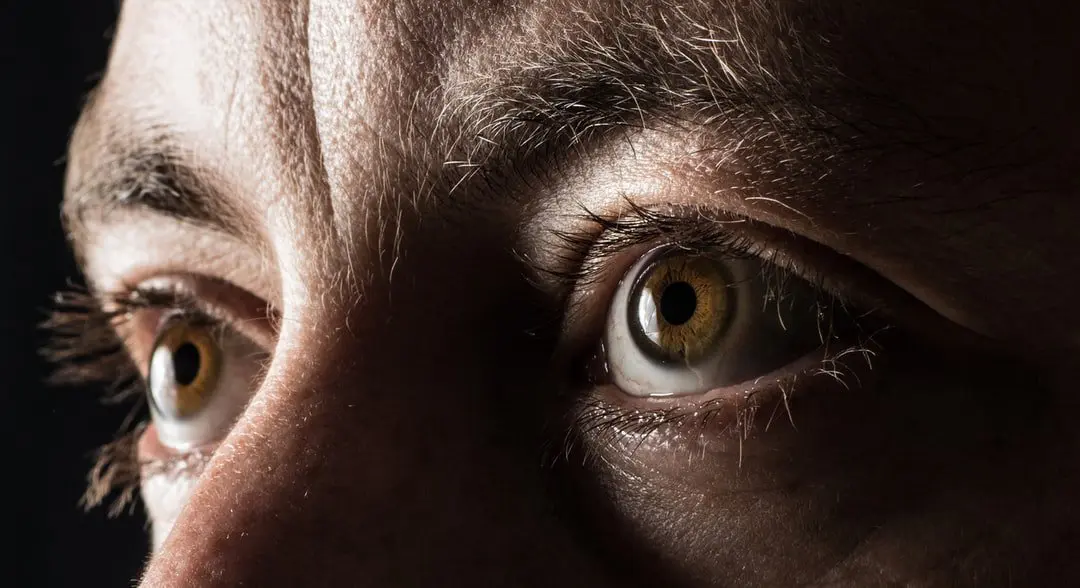When Should Eye Floaters Be Taken Seriously?

Eye floaters are one of those things that most people notice sooner or later in life. In fact, anywhere from 50-99% of people will develop floaters at some point. But how and when do eye floaters become serious? Read on as a Marysville, WA optometrist talks about eye floaters, when to take them seriously, and when to seek medical attention.
What Are Eye Floaters?
Eye floaters are the little dots, spots, or strings of light you see when you look at the sky or a blank wall. If you’ve never had eye floaters before, it can be pretty alarming—especially if you find them in your field of vision while driving!
The spots you see are bits of protein in the vitreous humor (the gel-like substance that fills most of the eyeball). When something gets caught in the vitreous humor, it can cast a shadow on your retina and create an optical illusion of movement as it tumbles around in front of your eye. You may also see flashes of light or have trouble focusing your vision on things close up.
Who’s Most Likely to Develop Eye Floaters?
Eye floaters are more common than you might think. In fact, approximately 40% of people between the ages of 50 and 80 will develop them at some point.
There are a number of factors that can increase your risk of developing eye floaters, including:
- Age (eye floaters are more common as you get older)
- Family history
- Smoking
- High blood pressure
- Excessive alcohol consumption
- High blood pressure
- Diabetes
- Overweight or obese
When to Seek Medical Attention for Eye Floaters
Eye floaters can be a nuisance, but they’re generally not cause for concern. That being said, there are some instances when you should definitely seek medical attention for your eye floaters.
A simple rule of thumb is that if you experience new floaters or an increase in their number, you should schedule an appointment with your eye doctor. If you notice a change in the appearance or location of your floaters (for example, if they move from one side of your vision to another), this may also warrant a visit to the eye doctor.
If you have persistent eye floaters accompanied by flashes of light in your field of vision, it’s important that you seek treatment immediately because these symptoms can indicate retinal detachment or bleeding in the eye.
You should also see an optometrist if you experience any sudden decrease in vision or if your vision becomes blurry after looking at bright lights or at night.
Our opinion on When Should Eye Floaters Be Taken Seriously in 2024
What are eye floaters, and how do they appear in our vision?
Eye floaters are small, shadowy shapes that appear in one’s field of vision, often as dots, lines, or web-like structures. They are caused by tiny pieces of the eye’s vitreous humor, the gel-like substance filling the eyeball, clumping together. As light enters the eye, these clumps cast shadows on the retina, the light-sensitive tissue at the back of the eye. This results in the floating visual effects that move as your eyes move and seem to dart away when you try to look directly at them.
Who is most at risk of developing eye floaters?
Individuals most at risk of developing eye floaters include those over 50, as the vitreous humor naturally begins to liquefy and shrink with age, leading to the formation of floaters. Other risk factors include having a family history of eye floaters, undergoing cataract surgery, experiencing eye trauma, or having conditions such as myopia (nearsightedness), diabetes, and inflammatory eye diseases. Additionally, lifestyle factors like smoking and excessive alcohol consumption can increase the likelihood of developing eye floaters. Regular eye exams can help monitor and manage this condition effectively.
What lifestyle and health factors increase the likelihood of developing eye floaters?
Lifestyle and health factors that increase the likelihood of developing eye floaters include smoking and excessive alcohol consumption, which can affect eye health and lead to changes in the vitreous humor. High blood pressure and diabetes are significant health conditions that can alter blood flow to the eye and potentially contribute to forming floaters. Being overweight or obese also poses a risk, as it is associated with higher rates of diabetes and hypertension. Insufficient eye protection against UV light and poor nutritional habits may contribute to eye health issues, including floaters.
What severe conditions could persistent eye floaters with flashes of light indicate?
Persistent eye floaters accompanied by light flashes can indicate severe conditions such as retinal detachment or retinal tear. These symptoms may signal that the vitreous humor is pulling away from the retina or that the retina itself is becoming dislodged from its normal position at the back of the eye, both of which can lead to vision loss if not treated promptly. Additionally, such symptoms might suggest vitreous hemorrhage, where bleeding within the eye’s vitreous humor causes floaters and flashes. Immediate evaluation by an eye care professional is crucial to diagnose and treat these conditions effectively.
When is it critical to consult an optometrist regarding vision changes associated with eye floaters?
It’s critical to consult an optometrist regarding vision changes associated with eye floaters if you experience a sudden increase in the number of floaters, persistent flashes of light, or a shadow or curtain obstructing part of your vision, which could indicate retinal detachment. Additionally, if floaters are accompanied by pain or if your vision becomes significantly impaired, these could be signs of other severe eye conditions requiring immediate attention. Early consultation can help diagnose potential eye health issues early on and prevent further vision loss or complications.
If you have more questions or wish to schedule an eye exam, please don’t hesitate to call our Marysville, WA optometry office today!


!Social icons